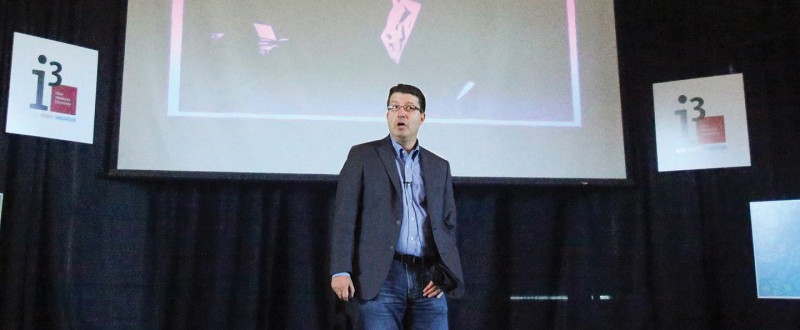The Final Word
Why History Matters
i3 presentation by Michael Flamm, professor of history and author of In the Heat of the Summer: The New York Riots of 1964 and the War on Crime (2017)

Why, in an age of fake news and instant analysis, should we care about the past?
Most of the time, in fact, we do not. Most of the time, we prefer to bask in the warm glow of historical amnesia. But then an event like Charlottesville takes place, when the worst demons of our nature and history re-emerge, and force us to confront the tragedies of the past.
Now is not the time to debate the merits of Gen. Robert E. Lee. But it is time to note, for the record, that the commission of the statue honoring him in Charlottesville, Virginia, came two years after the release of one of the most famous and dangerous films in American history.
Birth of a Nation (1915) celebrated the lost cause of the Confederacy and praised the heroism of the Ku Klux Klan. Lee, incidentally, never denounced the KKK during his lifetime. President Woodrow Wilson, a fellow Virginian, heralded the film, endorsed it as “history written by lightning,” and screened it in the White House. Not coincidentally, the Second or “New Klan” was enjoying a revival of popularity at the time.
By 1924, one in five native-born white men in the United States belonged to the KKK. That same year, the Klan was such a powerful part of the Democratic Party that it was able to deny New York Gov. Al Smith, a Roman Catholic, the presidential nomination.
Today more than ever, history matters because basic freedoms are under assault around the world and here in the United States.
professor of history and author
Now, why does this history matter? Because it reminds us of a very simple but very important point: Statues do not merely commemorate history. They reflect a particular period of time, and they represent a political point of view. Contrary to what some wrongly claim, statues are not some timeless, universal celebration of heritage.
Why else does history matter? Well, as the famous scholar Arthur Schlesinger Jr. notes, “it’s really hard to know where you’re going if you don’t know where you are or where you’ve been.“
History is also an essential tool in the ongoing fight against political totalitarianism. As the Czech author Milan Kundera noted during the Cold War, “The struggle of man against power is the struggle of memory against forgetting.”
History is an essential tool whether the threat to our basic freedoms comes from the communist left or the fascist right. Today more than ever, history matters because basic freedoms are under assault around the world and here in the United States. We cannot and should never take them for granted. The most important lesson that history teaches us is that our rights, our liberties, ultimately depend on our constant vigilance.
Transcribed and lightly edited.
To watch the nine other professors selected by students to give i³ presentations in 2017, please visit owu.edu/i3.
